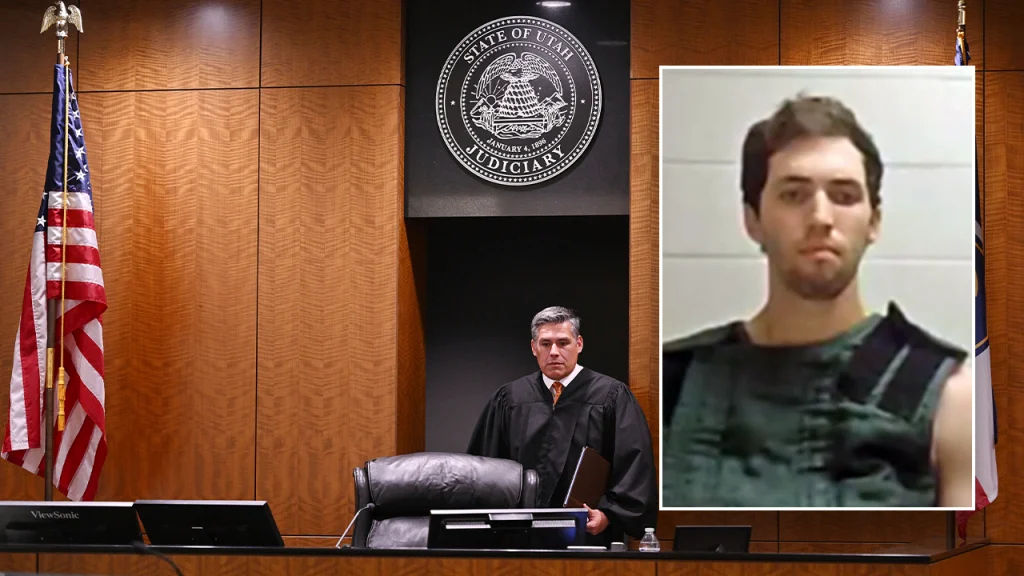The Challenging Defense of Charlie Kirk’s Alleged Assassin
In the wake of the shocking assassination of Turning Point USA founder Charlie Kirk, defense attorney Kathryn Nester faces what legal experts describe as an “incredibly tough case” representing Tyler Robinson. Maryland attorney and legal analyst Randolph Rice suggests the primary goal for Robinson’s defense team is straightforward but daunting: keeping their client off death row. This might involve pursuing a plea deal similar to Bryan Kohberger’s defense in the Idaho student murders case, though such negotiations could take months or even years to materialize. Robinson’s defense team must navigate not only the substantial evidence against their client but also the politically charged nature of the case, which has drawn national attention and strong emotions from across the political spectrum.
The defense strategy may focus on arguing that the single sniper shot posed no danger to anyone other than the intended target, potentially avoiding the aggravating factors necessary for a death penalty sentence. While Robinson, like all defendants, is presumed innocent until proven guilty, prosecutors have assembled compelling evidence against him. This includes alleged confessions to friends and family, DNA evidence on the recovered rifle, surveillance footage, and cell phone data placing him at the scene. Perhaps most damaging is the report that Robinson told his roommate he killed Kirk because he “had enough of [Kirk’s] hatred. Some hate can’t be negotiated out.” Adding to the prosecution’s case, law enforcement sources indicate an officer encountered Robinson near where the murder weapon was recovered as he was allegedly attempting to retrieve it before fleeing.
Defending against a potential death penalty will require Robinson’s legal team to assemble a comprehensive team of forensic specialists, mental health evaluators, and jury consultants. However, they may face challenges securing adequate funding for these resources. The case is further complicated by statements from Kirk’s widow, Erika Kirk, who has publicly forgiven Robinson “because it was what Christ did, and it’s what Charlie would do.” She has also expressed reluctance to influence the decision regarding capital punishment, telling the New York Times, “I do not want that man’s blood on my ledger. Because when I get to heaven, and Jesus is like: ‘Uh, eye for an eye? Is that how we do it?’ And that keeps me from being in heaven, from being with Charlie?”
Should prosecutors offer a plea deal, it might differ from the Kohberger case in that Robinson would likely need to publicly allocute to his crimes. Staten Island defense attorney Louis Gelormino, who is following the case, suggests Robinson’s team may explore an insanity defense, though this could be undermined by evidence of premeditation, including his alleged week-long planning of the crime after leaving Orem. The defense will also likely challenge as much evidence as possible, looking for procedural missteps by police or prosecutors. “It’s an incredibly tough case,” Gelormino notes. “I don’t envy the defense attorney at all…They’ve got all the evidence in the world.”
Robinson’s lead attorney, Kathryn Nester, brings significant experience to the case, having defended capital cases in both California and Utah over her 30-year career. Her recent high-profile clients include Kouri Richins, a Utah mother accused of killing her husband and then writing a children’s book about grief. Facing Nester and her team will be a formidable prosecution led by Utah County Attorney Jeff Gray, who has assembled a team of six attorneys with impressive credentials. The team includes Chad Grunander, who prosecuted Utah’s first televised trial; Christopher Ballard, who has argued over 175 appellate cases; and Ryan McBride, Utah’s Prosecutor of the Year for 2023.
The next step in the legal process comes Monday when Robinson will appear for a waiver hearing to determine whether the defense will force prosecutors to present probable cause before proceeding with the case. Declining to waive would be a strategic move giving Robinson’s attorneys access to additional discovery materials and an early opportunity to cross-examine state witnesses. Robinson faces seven counts, including aggravated murder with the potential for the death penalty, along with felony firearms charges, obstruction of justice, witness tampering, and committing violence in the presence of a child. As the case unfolds, it continues to highlight the deep political divisions in the country while raising profound questions about violence, justice, forgiveness, and the appropriate punishment for political assassination in modern America.











